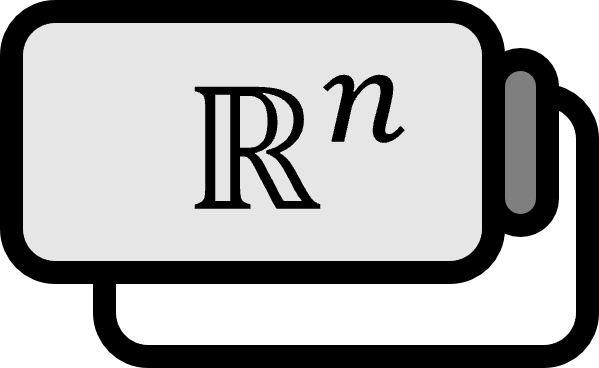Total Differentiation, Exact Differentiation
Definition
Let’s assume that a multivariable function $f : \mathbb{R}^{n} \to \mathbb{R}$ is given. The change of $f(\mathbf{x})$ according to the change of variable $\mathbf{x} = (x_{1}, x_{2}, \dots, x_{n})$ is denoted as $df$, and this is called the total differential or exact differential of $f$.
$$ \begin{equation} df = \frac{ \partial f}{ \partial x_{1} }dx_{1} + \frac{ \partial f}{ \partial x_{2} }dx_{2} + \cdots + \frac{ \partial f}{ \partial x_{n} }dx_{n} \label{1} \end{equation} $$
Explanation
The above definition means that the change in value of $f$ according to the change in variable $\mathbf{x}$ is
This notation is intuitive and convenient, as can be seen in the following equation. When we say $f=f(x,y,z)$,
$$ \dfrac{df}{dx} = \frac{ \partial f}{ \partial x}\dfrac{dx}{dx} + \frac{ \partial f}{ \partial y}\dfrac{dy}{dx} + \frac{ \partial f}{ \partial z}\dfrac{dz}{dx} = \dfrac{\partial f}{\partial x} $$
In physics, it often appears in the following form. Regarding $\left( x(t), y(t), z(t) \right)$,
$$ \dfrac{d f}{d t} = \frac{ \partial f}{ \partial x}\dfrac{dx}{dt} + \frac{ \partial f}{ \partial y}\dfrac{dy}{dt} + \frac{ \partial f}{ \partial z}\dfrac{dz}{dt} $$
Derivation
For a function of two variables, $\eqref{1}$ can be derived as follows. Let’s assume $z=f(x,y)$ is given. The total differential of $z$ is the change in $z$ when variables $x$, $y$ change, so it can be represented as follows.
$$ dz = f(x+dx,y+dy)-f(x,y) $$
Here, by subtracting and adding $f(x,y+dy)$ on the right side, and then arranging the equation, it looks like the following. $$ \begin{align*} dz &= f(x+dx,y+dy) {\color{blue}-f(x,y+dy)+f(x,y+dy)}-f(x,y) \\ &= [f(x+dx,y+dy) -f(x,y+dy)]+[f(x,y+dy)-f(x,y)] \\ &= \frac{f(x+dx,y+dy) -f(x,y+dy)}{dx}dx+\frac{f(x,y+dy)-f(x,y)}{dy}dy \\ &\approx \frac{ \partial f}{ \partial x}dx + \frac{ \partial f}{ \partial y }dy \\ &= \frac{ \partial z}{ \partial x}dx+\frac{ \partial z}{ \partial y}dy \end{align*} $$
■
